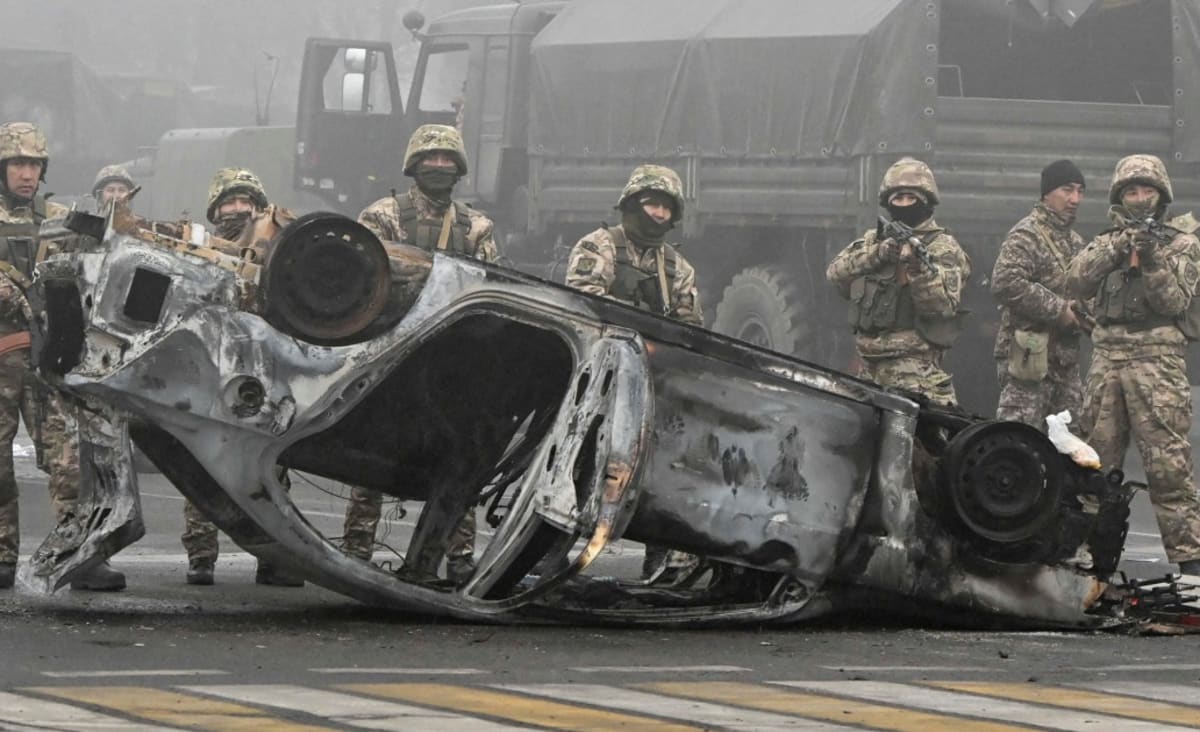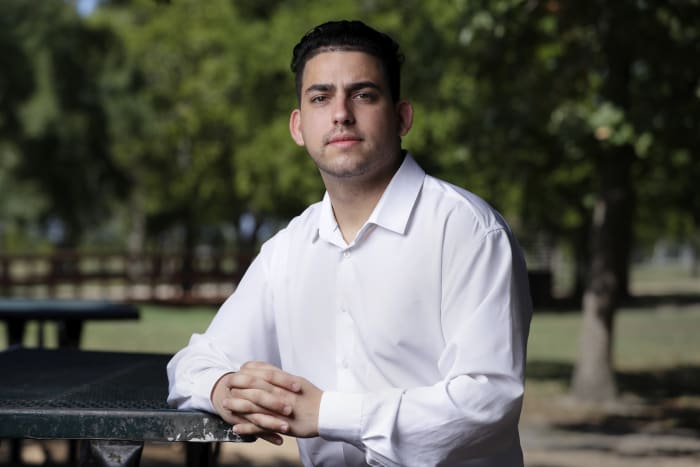
www.nbcnews.com
Burned buildings, violent clashes: Why is unrest so widespread in Kazakhstan?
Violence and widespread protests erupted in Kazakhstan after the price of liquefied petroleum gas spiked. Russia and China are monitoring events closely.
International
It began with protests about gas prices but quickly escalated.
Government buildings have been stormed and set ablaze and tens of thousands of people have taken to the streets in cities across Kazakhstan as the country’s autocratic rulers face the biggest challenge to their authority in decades.
A sudden spike in the price of liquefied petroleum gas that many people use to power their vehicles — a decision that was quickly reversed — sparked the protests on Sunday.
They rapidly spread, turning into wider discontent about how the country is run — the Nur Otan party has ruled for over two decades — and opposition to former President Nursultan Nazarbayev, who ruled for nearly three decades.
Nazarbayev, 81, has not been seen or heard from since the protests began, but has been been widely seen as the main political force in Nur-Sultan, the purpose-built capital that bears his name. His family is believed to control much of the economy, the largest in Central Asia.
Amid internet and telephone blackouts, there have been reports of mounting casualties among both protesters and security forces. NBC News has not been able to verify those reports.
International forces led by Russia moved into the country after Nazarbayev’s successor as president, Kassym-Jomart Tokayev, appealed for help.
What could the protests, which show little sign of abating, mean for the people of Kazakhstan, and what are the wider implications for its neighbors?
Why are the protests a big deal?
Kazakhstan, which spans a territory the size of Western Europe, borders Russia to the north and China to the east. It sits on top of vast reserves of oil, natural gas and precious metals, making it both strategically and economically important to both, according to James Nixey, the director of the Russia-Eurasia program at Chatham House, a London-based think tank.
“We’re looking at one of the largest countries in the world,” he said, adding that it had “incredible hydrocarbon wealth.”
The country has been a largely stable autocracy since it became independent after the collapse of the Soviet Union in 1991, and there haven’t been protests of this scale since the 1980s, Emma Ashford, a resident senior fellow at the Atlantic Council, a Washington-based think tank, wrote Wednesday.
“That political stability has enabled it to become a major exporter of oil, natural gas and coal,” she said.
If the unrest becomes significant enough to disrupt energy production or transportation, the economic effects could be disproportionate to Kazakhstan’s political importance, she added.
Western investors would be “seriously worried because they need a degree of stability, regardless of whether it’s democratic stability, in order to keep functioning,” Nixey said.
“They need the relationships with government figures who are in peril of losing their jobs and livelihoods right now,” he added.
Why are Russia and China worried?
Kazakhstan is an important oil supplier for China and is a key strategic ally for Moscow, according to Nixey and Ashford.
Russia also has strong interests in Kazakhstan, Ashford said. These include the Baikonur Cosmodrome, the launch site for its space missions that Moscow rents from its southern neighbor. It also often relies on Kazakh gas as a backstop for insufficient Russian production, she said.
Moscow is also worried that the unrest could lead to Kazakhstan falling out of its sphere of influence, Nixey said. “Russia is always concerned that former Soviet republics will leave the fold, and Kazakhstan is a particularly important one,” he added.
But while the Kremlin said the protests were an “internal problem” for Kazakhstan, it was quick to send a contingent of its forces as part of a mutual defense pact among ex-Soviet states, after Tokayev requested help Wednesday. The treaty is supposed to be invoked for external military threats only.
























































